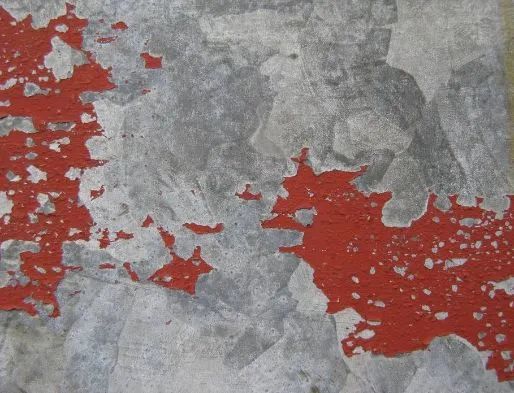
Privacy statement: Your privacy is very important to Us. Our company promises not to disclose your personal information to any external company with out your explicit permission.
![]() August 16, 2023
August 16, 2023

Corrosion is a chemical reaction that partially or completely peels off, dissolves, or softens the surface of a metal. Rust "is often misused or misunderstood, referring only to iron and steel. "Corrosion" includes not only Ferrous, but also non-ferrous metals. The following content mainly discusses the causes of corrosion and corrective measures.

Metal particles in metal working fluids are often considered as "dirt" or "debris". If not cleaned in a timely manner, debris can accumulate on the surface of the workpiece and form batteries, and the metal underneath the debris often rusts. Under single machine conditions, it should be drained, cleaned, and rinsed with clean water in a timely manner, and fresh metal working fluid should be added according to the recommended concentration.
Water
Usually, chemicals in water accumulate and increase the corrosion level of the processing fluid. All water contains ions, some of which are corrosive and can cause corrosion of most metals. Water contains over 100 × 106 chloride, over 100 × 106 sulfides, or 50 × 106 nitrate, these ions are considered aggressive. Chlorides, sulfides, and nitrates damage the protective layer on metal surfaces, leading to corrosion. Continuously adding water will increase the chloride, sulfide, and nitrate content of the central tank system. The longer the metal working fluid is used, the higher the corrosiveness of ions.
The formula of each metal working fluid needs to maintain its concentration to achieve its "best point". Regularly testing the concentration of metal working fluid can avoid processing performance and environmental issues.
If the user suspects that the water is corrosive, they can take a sample and determine it through full analysis. When the metal working fluid in the central groove system is suspected of causing corrosion, please take a sample and test the ion content. When the concentration of chlorides, sulfides, and nitrates exceeds the acceptable range, deionized water or distilled water can be used as process water, or metal working fluids with high corrosion resistance can be selected.
Solids dissolved in water can disrupt many of the desired properties of metal working fluids. The most familiar example is "water hardness", which is caused by the dissolution of calcium and magnesium ions in water.
The solubility of compounds formed by the reaction of divalent ions with soaps, wetting agents, and emulsifiers will decrease. This insoluble component depletes the rust inhibitor of machine tools and workpieces. Hard water refers to water content exceeding 250 × 106 calcium carbonate or 15 "German grams" (German hardness standard). The higher the hardness, the more prone it is to corrosion.
Conductivity is another method for detecting dissolved ions in metal working fluids. High conductivity increases corrosion, instability of metal working fluids, residues, and other issues. Exceeding 4MilliSiemens/cm is considered high conductivity.

Low concentration
Within the scope of design, the composition of the metal working fluid will be effective. If the concentration is low, the composition of the metal working fluid cannot achieve the designed concentration effect. Including rust inhibitors, they cannot prevent corrosion of newly processed and ground workpieces.
The concentration of the processing fluid should be regularly or regularly tested. Chemical titration and refractometer are the best methods for detecting concentration, and concentrated solution can be added to achieve the recommended concentration. For single machines, additives should not be used to break the balance, and the liquid should be poured and replaced.

The above is the Causes of Metal Surface Corrosion and Application of Metal Processing Oil we have listed for you. You can submit the following form to obtain more industry information we provide for you.
You can visit our website or contact us, and we will provide the latest consultation and solutions
Send Inquiry
Most Popular
lastest New
Send Inquiry
Send Inquiry

Mr. James
Tel:0086-371-58651986
Fax:
Mobile Phone:+8613783582233
Email:sales@cn-lubricantadditive.com
Address:No.11 Changchun Road, High-Tech Zone, Zhengzhou, Henan
Related Products List
Mobile Site


Privacy statement: Your privacy is very important to Us. Our company promises not to disclose your personal information to any external company with out your explicit permission.

Fill in more information so that we can get in touch with you faster
Privacy statement: Your privacy is very important to Us. Our company promises not to disclose your personal information to any external company with out your explicit permission.